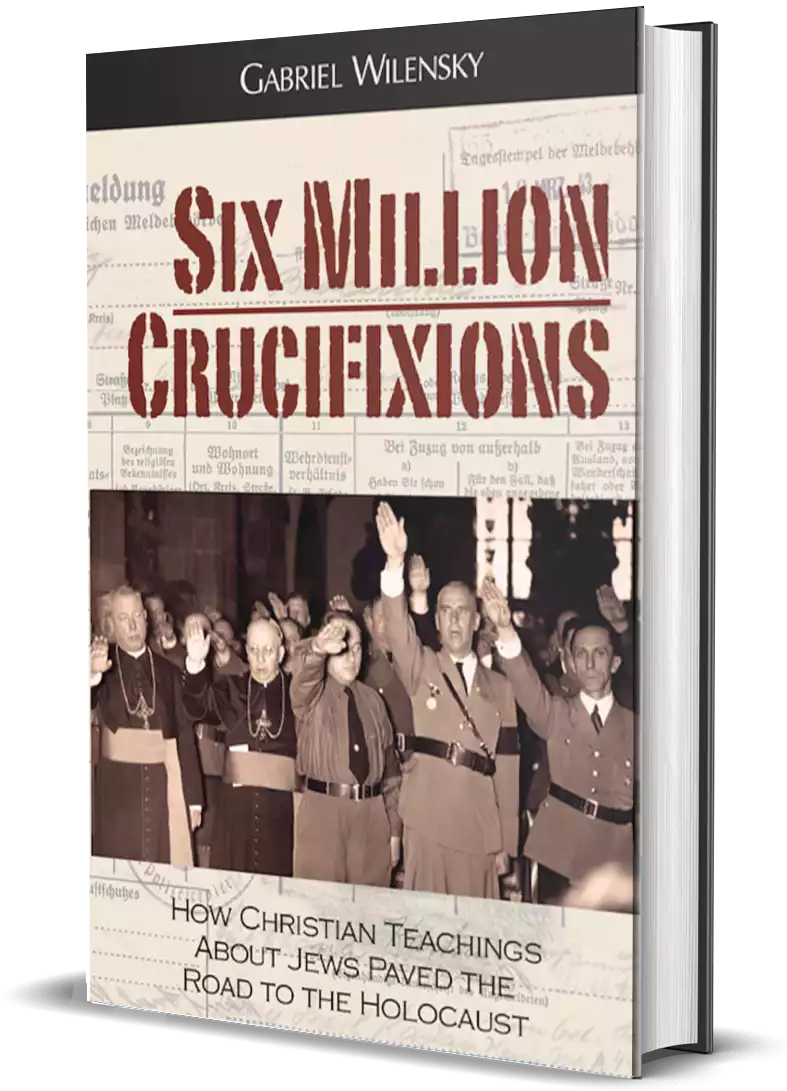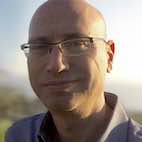About “We Remember – A Reflection on the Shoah”:
Are We Remembering?
An article on Jewish Review, titled “Conference explores Catholic teachings from Holocaust” discusses the declaration We Remember: A Reflection on the Shoah. The Catholic Church issued his important document at the behest of Pope John Paul II in 1998.
The declaration was good intentioned but self-exculpatory. It said things like, “The Shoah was the work of a thoroughly modern neo-pagan regime. Its anti-Semitism had its roots outside of Christianity” and “Sentiments of anti-Judaism in some Christian quarters and the gap which existed between the Church and the Jewish people led to a generalized discrimination . . .” and “[Jews] were looked upon with a certain suspicion and mistrust. In times of crisis such as famine, war, pestilence or social tensions, the Jewish minority was sometimes taken as a scapegoat and became the victim of violence, looting, even massacres”.[i] Pope John Paul II himself said “In the Christian world—I do not say on the part of the Church as such—erroneous and unjust interpretations of the New Testament regarding the Jewish people and their alleged culpability have circulated for too long.”[ii] Both the declaration and what the pope said are misleading, because even though I can agree that Nazism was neo-pagan, it was standing on a Christian foundation. Despite the regime’s strongest efforts, the vast majority of the population remained church-going Christians. It’s also simply untrue that the antisemitism of the Nazis had its roots outside Christianity. Nazi antisemitism was secular and racial, but its roots were deeply entrenched in Christian teachings. Also, discrimination against Jews in Christendom did not come from “Sentiments of anti-Judaism” in “some” Christian quarters. It came from official, systematic disparagement from the popes down to parish priests, from Church Fathers to theologians. And it didn’t affect “some” Christians. The hatred was pervasive and generalized. It was the norm, not the exception. When John Paul talked about “the Christian world” but not “the Church as such” he was misleading because he was suggesting the problem was a bunch of rotten apples, and thus exculpated the church and most Catholics. But the reality was the other way around. Some Christians argue that these “rotten apples” were not true Christians, not representative of the general population. This is not correct. If we were to call “Christian” only those who conform to an idealized, Jesus-like individual, then there would be very few Christians in the world.
“Discrimination against Jews in Christendom did not come from “Sentiments of anti-Judaism” in “some” Christian quarters. It came from official, systematic disparagement from the popes down to parish priests, from Church Fathers to theologians. And it didn’t affect “some” Christians. The hatred was pervasive and generalized. It was the norm, not the exception.”
The “he was not a Christian” type of argument is not restricted to Christianity. The post-WWII Germans said “We didn’t know”, “It wasn’t us” or “It was just a few thousand SS, not the German people”. Well, it’s true that thousands of Germans perpetrated the Holocaust, in the sense of throwing poison gas into a gas chamber or mowing hundreds of people down into a mass grave, but this people did not spontaneously come from nowhere. The perpetrators were able to do what they did because millions of bystanders thought it was the right thing to do.
At the Conference on History 1933-1948 at the University of Portland Rev. John Pawlikowski discussed the role of Catholic theology in the Holocaust. As he said, scholars agree that “The Holocaust succeeded in a climate impacted by Christians for centuries. … [Christianity] provided a seedbed—at least for acquiescence during the attacks on Jews.” He quoted various Catholic leaders who recognized this background, including We Remember. But unfortunately Pope Benedict is moving away from the courage shown by other Catholic leaders, like the French bishops who issued the “Declaration of Repentance” in 1997, certainly a more forthright mea culpa than We Remember:
“It is important to admit the primary role, if not direct, then indirect, played by the constantly repeated anti-Jewish stereotypes wrongly perpetuated among Christians in the historical process that led to the Holocaust. . . .
According to theologians it is a well-attested fact that a tradition of anti-Judaism affected Christian doctrine and teachings, theology and apologetics, preaching and liturgy in various degrees and prevailed among Christians throughout the centuries until Vatican Council II. This soil nurtured the poisonous plant of contempt for Jews with its legacy of serious consequences, which until our century, have been difficult to remove. Wounds resulting from this contempt are still open and unhealed.
To the extent that the priests and leaders of the Church for so long allowed the teaching of contempt to develop and fostered in Christian communities a collective religious culture which permanently affected and deformed mentalities, they bear a serious responsibility. One can conclude that even though they condemned the pagan roots of antisemitic theories, they failed to challenge these secular thoughts and attitudes by not clarifying understandings as they should have.
As a result consciences were often lethargic, their capacity considerably weakened in face of the sudden appearance of national socialist antisemitism’s criminal violence, a diabolic and extreme form of contempt for Jews based in categories of race and blood, openly directed at the physical elimination of the Jewish people.”[iii]
[i] We Remember: A Reflection on the Shoah, http://www.vatican.va/roman_curia/pontifical_councils/chrstuni/documents/rc_pc_chrstuni_doc_16031998_shoah_en.html
[ii] Address to Participants in a Symposium on “The Roots of Anti-Judaism in the Christian Milieu”, n. 1, 31 October 1997; ORE, 5 November 1997, p. 1

Grab Your Copy Today!
Six Million Crucifixions
Traces the history of antisemitism in Christianity and the role that played in making possible the Holocaust.
Want to stay informed about the topic?
Subscribe below.

